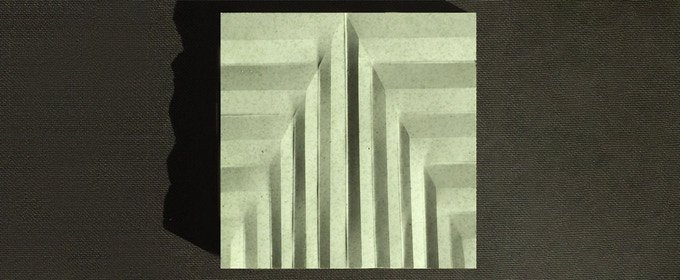Dust London is Transforming Tea Waste Into Covetable Homewares
The tea leaves infuse the objects with a range of earthy tones and subtle textures
Roughly 160 million teabags—which often contain polypropylene to keep them intact—are thrown away in Britain every day as Brits around the country fuel up with their drink of choice. Designers Michael McManus and Matt Grant launched their homeware line, Dust London, in part to bring more awareness to the potential of recycling natural materials and their first collection features a range of home accessories made primarily out of tea waste.


The initial drive behind Dust London was "to step away from the computerized and the mechanistic," as the designers wrote to us in a recent email. After exploring various natural materials, they gravitated toward tea waste for its "range of natural pigments and subtle textures." They also thought it would be a good conversation starter to get people talking about the potentials of sustainable design. "As a nation of tea drinkers in Britain, we find that people can relate."

First, they collect used tea bags from local cafes and separate the loose-leaf remains into different types—their current collection uses a palette of chamomile, peppermint, rooibos, English breakfast, and black tea. "We thoroughly dry them out and blend them so that they are ready to mix with a non-toxic binder. After much experimentation, we settled on jesmonite as our binding material. A key part of ensuring the strength and surface finish of our pieces is balancing the ratios of tea waste to the binding material. Once we have achieved the desired consistency, the material is ready to pour."

 A vase and coaster showing off different tones, all achieved with peppermint tea.
A vase and coaster showing off different tones, all achieved with peppermint tea.
The designers use temporary molds inspired by origami techniques. "We begin with a sheet of paper; scoring, folding and pinching to create the desired form," they explained ."A key part of this technique is balancing the tension between the curved facets. We then reinforce the paper and work through a series of steps to create robust and seamless silicone molds."
Following a successful Kickstarter campaign at the end of last year, their focus now is on adapting the process to make permanent molds that will allow them to ramp up production and add more objects to their collection, which so far encompasses vases, coasters, and planters. The Tate Modern will start stocking the pieces in their homeware and furniture store later this year.
-
o2Favorite This
-
QComment
K
{Welcome
Create a Core77 Account
Already have an account? Sign In
By creating a Core77 account you confirm that you accept the Terms of Use
K
Reset Password
Please enter your email and we will send an email to reset your password.



